Pakistan in pledge to protect journalists
- Published
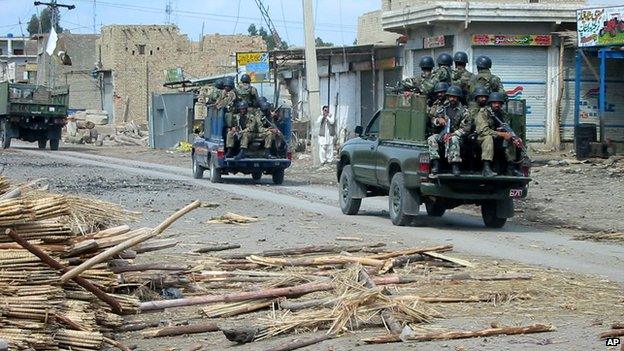
Journalists have been targeted in fighting between troops and militants in the tribal areas
The Pakistani Prime Minister, Nawaz Sharif, has pledged to do more to protect Pakistani journalists. Writer Ahmed Rashid, who is also a member of the New York-based Committee to Protect Journalists, says there are hopes this could mark a historic shift in the state's attitude to the press.
The brutal recent killing of Afghan journalist Sardar Ahmad, his wife and two children by the Taliban in Kabul's Serena Hotel has been received by Pakistani journalists with shock but also a sense of belonging to the same suffering tribe.
For too long Pakistani journalists have suffered death, kidnapping and torture at the hands of militants, political parties and the state's intelligence agencies - although this has always been denied by those accused.
In all, 46 journalists have been killed, 25 of whom were murdered in the past decade. Dozens more have been threatened and intimidated.
Yet until March there had not been a single conviction for the murder of a Pakistani journalist. Courts refused to pursue cases, witnesses were killed or failed to turn up, lawyers refused to take up briefs and in those cases where it was suspected that Pakistan's intelligence agencies may be involved, many journalists were too scared.
With three de facto insurgencies in the country, many areas have become akin to war zones. Often journalists working in these zones - in the Pashtun tribal areas in the north-west, Balochistan province and Karachi - have been forced into silence and their reports suffer from self censorship.
Nevertheless, with dozens of newspapers in many languages and more than 30 news channels on TV, there is an enormous appetite for news. This public interest has helped boost the confidence of journalists and their desire to report the news.
So in March when an anti-terrorism court bolstered by support from the government, the judiciary and most strongly by journalists themselves, convicted six people for the murder in 2011 of Wali Khan Babar, a popular TV reporter in Karachi, there was both surprise and immense joy.
It was an unprecedented judgement by a Pakistani court and came about partly because the venue of the trial had been changed to reduce the chance of intimidation. Now Prime Minister Nawaz Sharif has promised that more convictions will follow and journalists will get access to state organisations to lodge their complaints against perpetrators of violence.
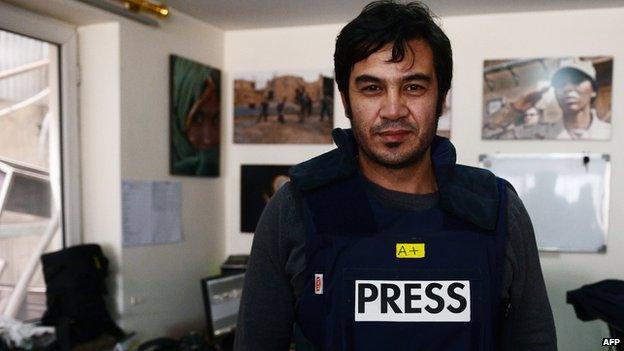
Sardar Ahmad was a staff correspondent for AFP in Kabul
Mr Sharif said he would establish public prosecutors in all four provinces and at the federal level to take up cases involving journalists. The government will pursue the courts to bring those cases of murdered journalists to trial. A new commission composed of both journalists and government officials will be set up in order to monitor abuses and there will also be a venue where the press can air their complaints.
He announced these measure on 19 March to a delegation of the Committee to Protect Journalists (CPJ) headed by Board Member Kati Marton, an American writer and journalist and the widow of US diplomat Richard Holbrook.
CPJ had a long list of measures that the Pakistan government needed to take up in order to provide greater protection for journalists. Mr Sharif agreed to all of them including changing trial venues of murdered journalists to avoid attacks, placing journalists' security high on the agenda as the government enters into talks with the Pakistani Taliban and highlighting the plight of journalists in Balochistan and the tribal areas.
He also agreed to review the lifting of restrictions on issuing visas and the travel limits placed on foreign correspondents, which have hurt Pakistan's image abroad and contributed to the idea that the country is off limits. There will be a review of the Declan Walsh case - the New York Times reporter who was forced to leave the country and declared persona non grata last year.
No Pakistani leader has ever promised such measures, even though they still have to be put into practice.
"Pakistan is perhaps the least likely role model for other democracies but the news from Islamabad signals a new climate of government-press understanding and a breakthrough for the country," said Kati Marton.
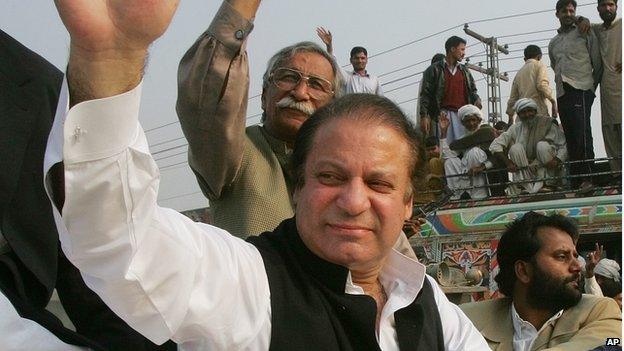
Nawaz Sharif returned to Pakistan after years in exile and swept to power in the 2013 elections
For the first time it may be possible that the government will treat the Pakistani media as a partner rather than an adversary in order to lift the country out of its present misery, which comes in the shape of insurgencies, economic decline and dwindling respect for human rights.
In Balochistan province, which has been wracked with insurgency, violence and the disappearance of journalists and civilians for more than a decade, the government has now asked the Supreme Court to try two army officers on cases of missing people. The officers will be tried under a military court but it is the first time such a case has even been brought to court.
Pakistan's media has suffered under long bouts of military rule, authoritarian civilian rule and the power of the ISI - who don't answer questions.
Yet the media has always fought back and both strengthened itself and prospered despite such a negative environment. Now it seems that a civilian leader is finally trying to address the long-standing grievances of the press.
- Published27 March 2014
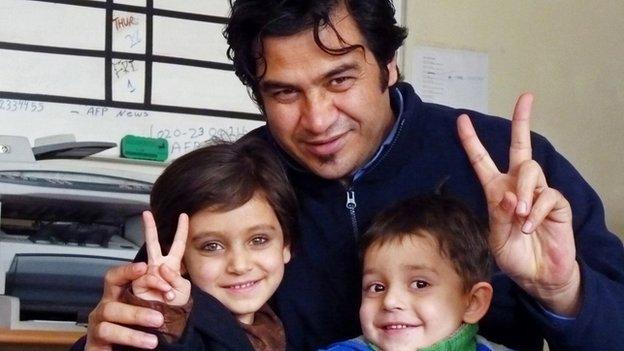
- Published21 March 2014
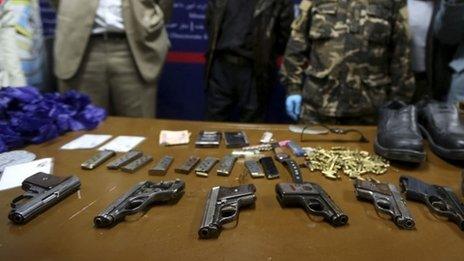
- Published22 August 2013